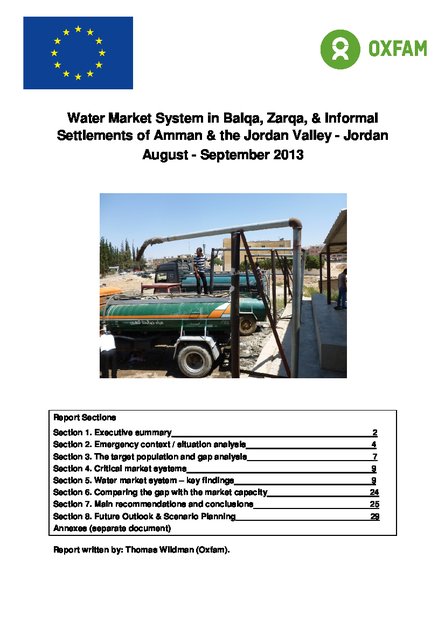
As the Syria conflict enters its third year the influx of refugees into neighbouring countries continues to rise exponentially. In Jordan there are currently over 540,000 refugees registered or pending registration. The majority (75%) of refugees in Jordan is residing in host communities dispersed across the country; most are in renting accommodation whereas some are in tented informal settlements, both groups face significant challenges in meeting their needs due to limited income and high costs. At the same time the refugee influx, which currently constitutes over 5% of the total population in Jordan, is placing increasing pressures on service provision and infrastructure, particularly in areas with high concentrations of refugees. Tensions between refugees and Jordanian host communities thus are increasing. Those living in rented accommodation are generally connected to the water supply system and have access to sanitation facilities. However, the water supply system is characterized by a chronic deficit with water supplied on a rotation basis, mostly once per week during winter time and lower frequency during summer time. The water deficit has been estimated at 16 l/p/d, with the remainder made up by purchase from private tankers, particularly during summer. Overall expenditure on water for drinking and other uses vary between 15 JOD and 80 JOD1 per month. People tend to complement the need of water by purchasing directly from private water companies / vendors.. Water is generally insufficient for their needs, meaning many have reduced washing to once every 7-10 days, leading to increase in skin infections.
